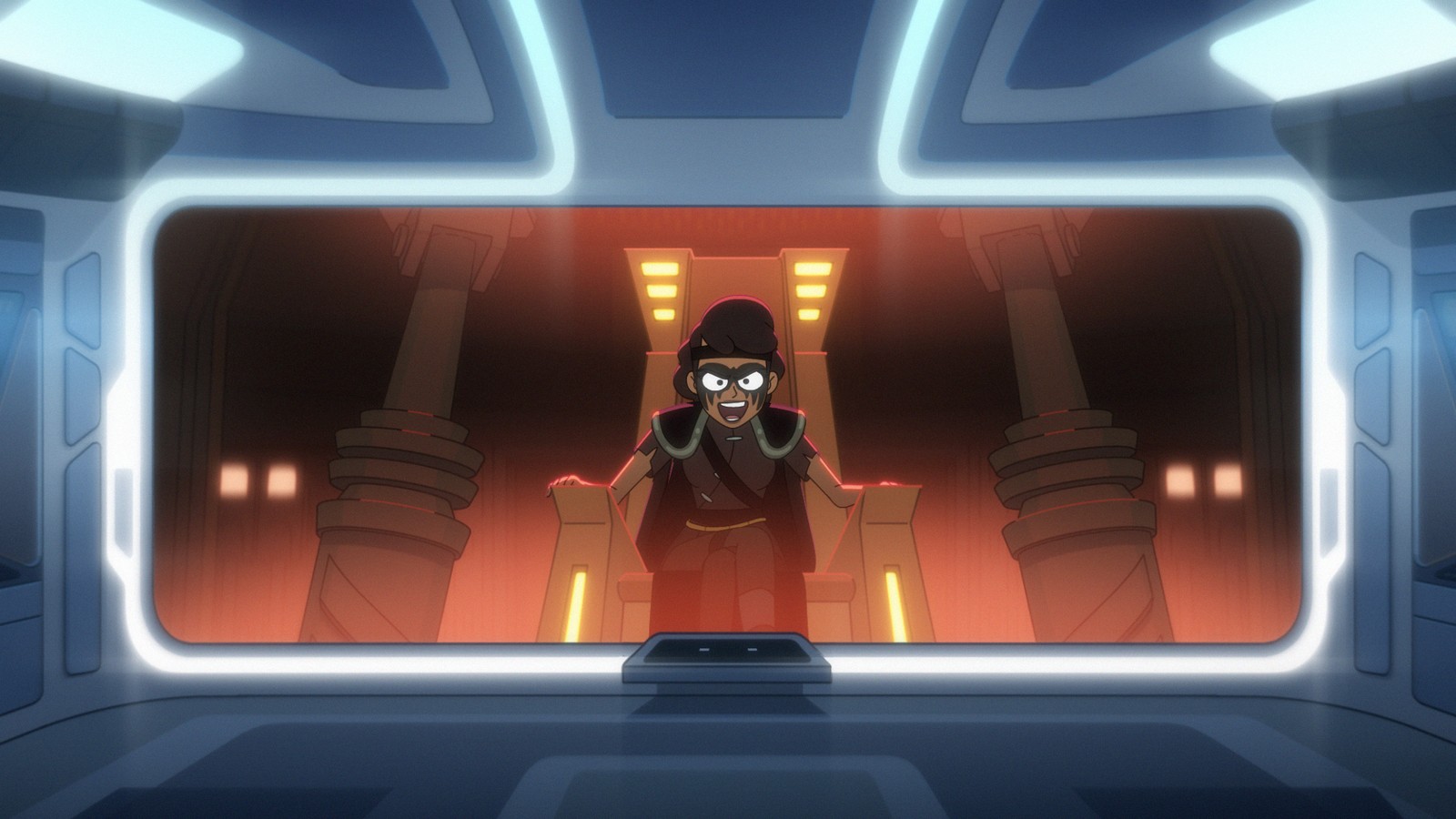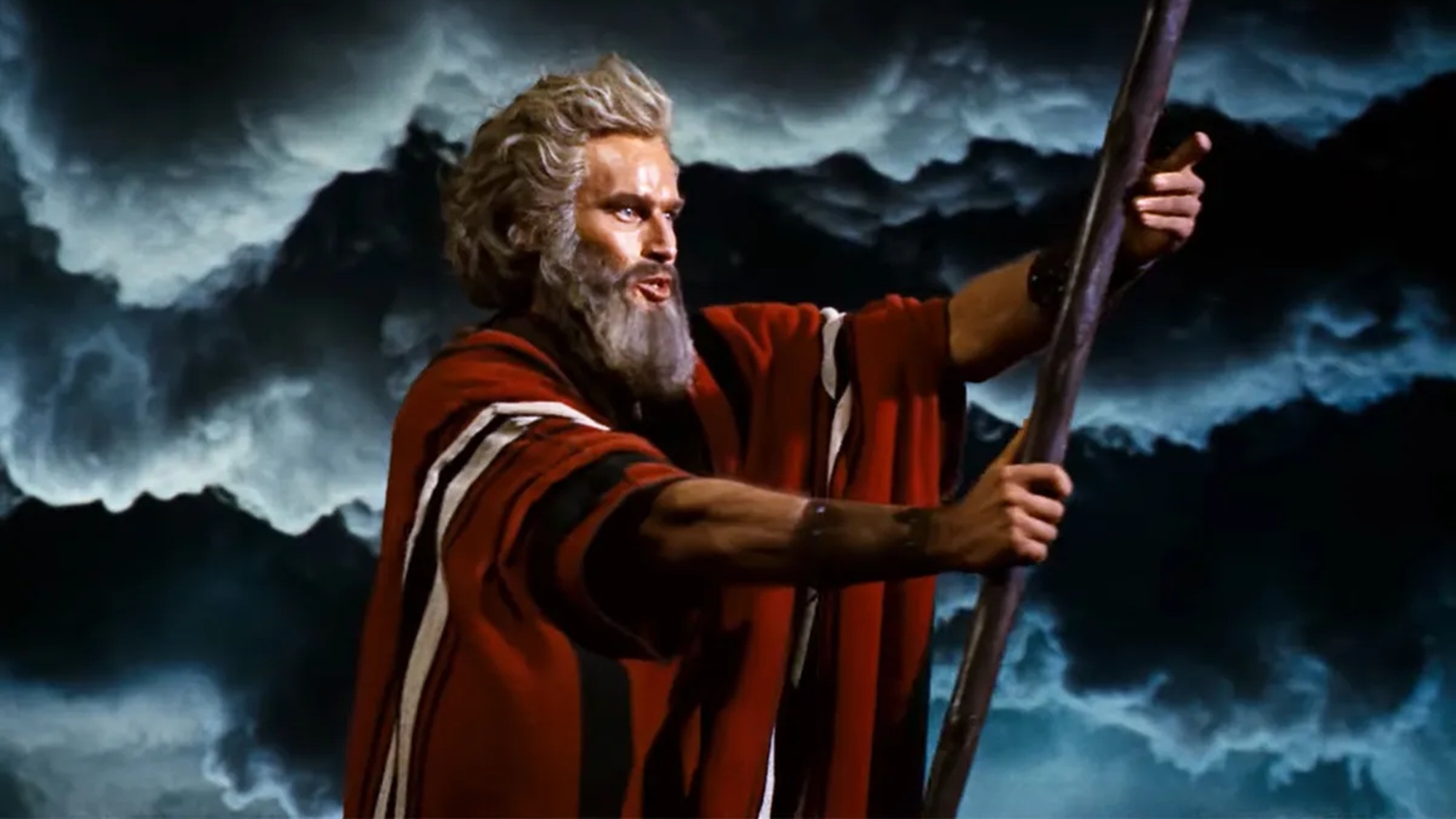What to Watch Verdict
“Crisis Point” doesn’t know how to balance strong Trek writing with being an animated comedy.
Pros
- +
🖖🏻Spot-on recreation of Trek film aesthetics.
- +
🖖🏻The animation team really went all out this episode.
- +
🖖🏻Mariner's season-long character arc is coming to a head.
Cons
- -
🖖🏻Reverence doesn't leave much room for parody.
- -
🖖🏻Doesn't shoot for the jokes it obviously sets up.
This post contains spoilers for Star Trek: Lower Decks. Check out our last review here.
“Crisis Point” is a very strange episode of Star Trek: Lower Decks. As the penultimate episode of the season, it’s setting up a season-long background conflict in preparation for its finale. If that tension were allowed to stand on its own, it would make for the kind of dramatic punctuation that wouldn’t feel out of place in the show’s live-action counterparts. However, not only is “Crisis Point” bogged down by the show’s mandate to be a comedy, it’s largely afraid to tell jokes that would undermine its reverence for what it’s parodying, namely the specific tone and absurdity of Star Trek movies as opposed to the main series.
After Mariner (Tawny Newsome) single-handedly frees a society of lizard people from being harvested by the planet’s rat people as a source of food, Captain Freeman (Dawnn Lewis) is infuriated that Mariner violated the Prime Directive and interfered with a planet’s natural social order. As punishment, Freeman orders Mariner to therapy, provoking the hilarious line “It’s the 80s! We don’t have mental problems!” After a visit with the ship’s therapist (Paul F. Tompkins) yields nothing but tortured food metaphors, Mariner crashes Boimler (Jack Quaid), Tendi (Noël Wells), and Rutherford’s (Eugene Cordero) visit to the holodeck, just as Boimler is about to use perfect simulations of the ship’s crew to prepare for a career interview with the Captain. This gives Mariner the idea to hijack the program and turn it into a movie, casting herself as the villain in a confrontational raid of the Cerritos.
The animation team really pulled out all the stops for this episode, replicating the more indulgent facets of Star Trek cinema with appropriate style and grace. There are the obvious small details, like the letterboxed framing and the occasional bit of film grain, but they also nailed the very specific amount of lens flare to be found in even the most banal scenes, as well as every Trek film’s absurd reverence to the majesty of its starship, only to destroy that ship fantastically in the third act. It’s all a very spot-on pastiche, but in the process, it kind of forgets to crack jokes in direct parody of those visual tropes. For example, the sweeping shot of the ship as Captain Freeman and the crew approach is drawn out and excessive, but if you’re waiting for a moment when the show acknowledges the excess for comedic effect, you’ll be left wanting. I’m unsure if the writing is too reverent or if the parody was neutered by studio tampering, but it makes you wonder what the point of the pastiche even is if the show isn’t going to throw even a soft punch.
This doesn’t mean the episode is entirely devoid of jokes — Rutherford’s observation that you can break the internal logic of the story because it’s a movie is hilariously astute — but the bulk of the episode is devoted to Mariner’s maniacal playacting as a warlord nemesis against Captain Freeman. Wreaking bloody devastation against the crew and ship is obviously en route to a therapeutic epiphany before Mariner even realizes it, but in the meantime, it exposes Mariner’s worst impulses in a consequence-free space.
She casts Tendi in the role of an Orion space pirate, revealing her unconscious acceptance of Orion stereotypes in a manner that makes Tendi uncomfortable in the role. She completely disregards Boimler’s desire to use the program he designed to allow him to prepare for his interview, even though he hilariously still tries even in the midst of a warzone. The only one Mariner doesn’t hurt is Rutherford, who is too distracted by breaking character to be best buds with his boss (Paul Scheer). The simulated chaos of Mariner destroying the ship she loves has inadvertent effects on the people she loves. This comes to a head when the climactic showdown isn’t between Mariner and Freeman, but between Mariner and a simulated copy of her best self. This realization that she does love her life, even when frustrated by the Captain’s mothering, allows her to move on and forgive Freeman and, more importantly, herself.
It’s a solid arc for Mariner that only becomes more complicated as Boimler, hoping to cram a bit more for his interview on the holodeck, accidentally learns of Freeman and Mariner’s mother-daughter relationship, causing him to spectacularly fail his interview and introducing a new dynamic for the season finale. I like how Lower Decks can use self-contained narratives with singular high concepts to deliver bits of character development that inform evolving character dynamics. You know, like other Star Trek shows used to. But “Crisis Point” doesn’t know how to balance that with its other mission statement of being an animated comedy, and the love it has for the specific visual panache of Trek cinema just doesn’t translate as the comic gold mine it should.
Star Trek: Lower Decks is available to stream now on Paramount Plus in the US and on Prime Video in the UK.
Leigh Monson has been a professional film critic and writer for six years, with bylines at Birth.Movies.Death., SlashFilm and Polygon. Attorney by day, cinephile by night and delicious snack by mid-afternoon, Leigh loves queer cinema and deconstructing genre tropes. If you like insights into recent films and love stupid puns, you can follow them on Twitter.












